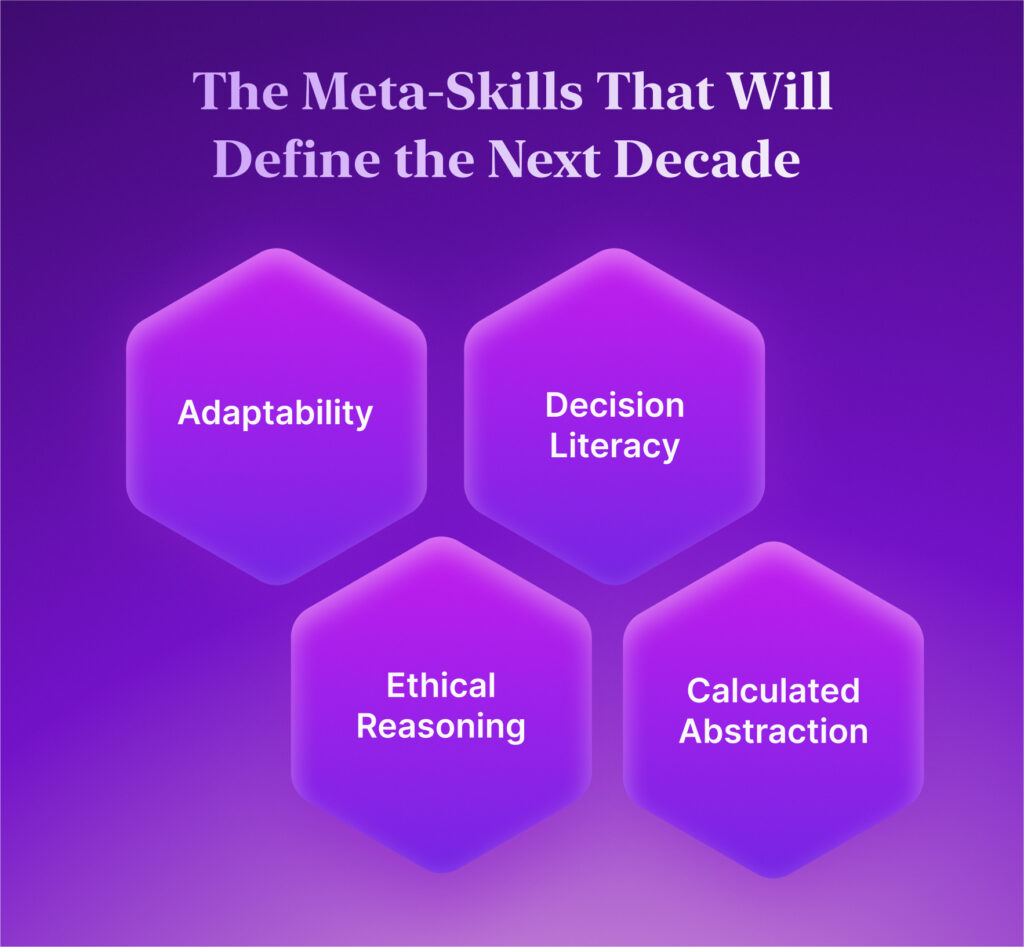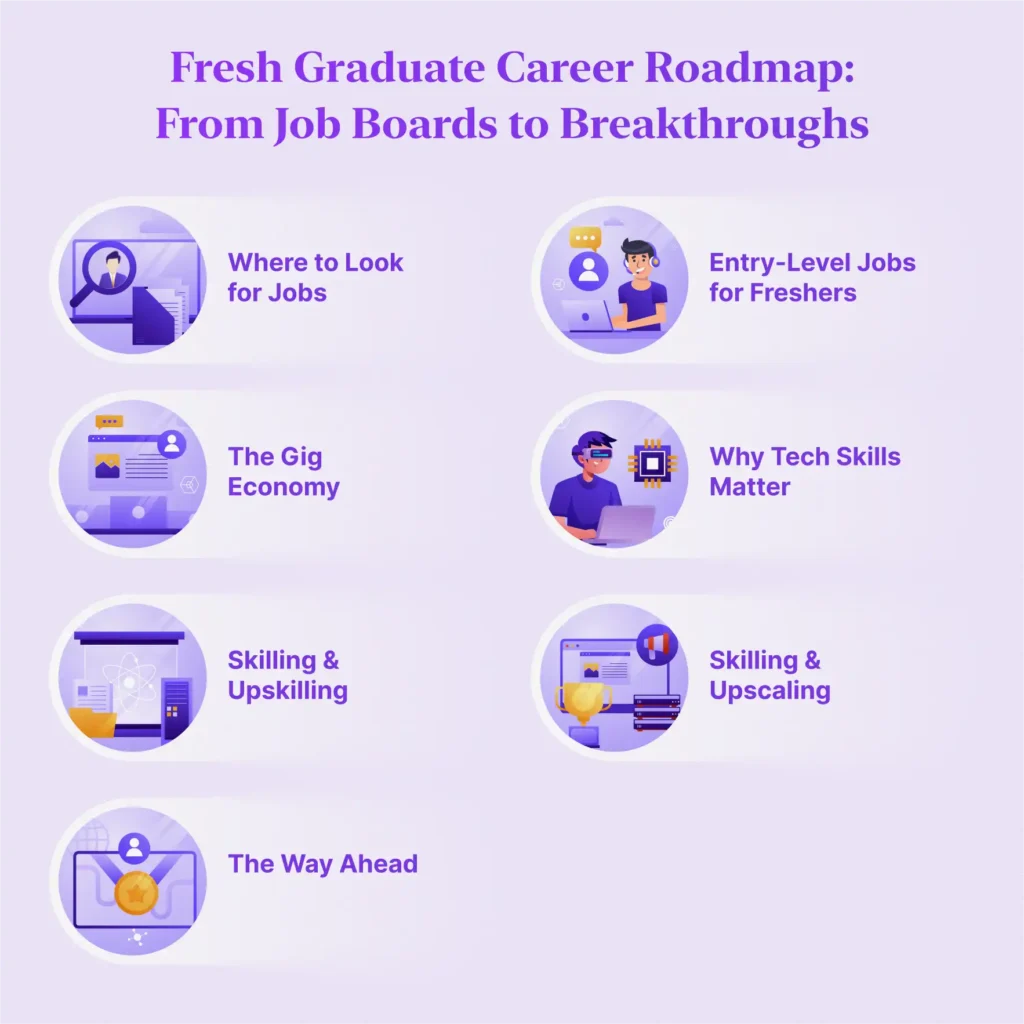The Next Workforce Transformation Is Underway
The rise of generative AI has spurred on one of the most outstanding transformations in the global talent landscape in recent history. This is now not like a forecast so distant. It is already underway.
AI is reshaping the roles, skills, and tasks which constitute work today, not just altering how firms run. The automation involving repeatable, task-based functions is accelerating at scale, from software development to customer support.
The impact is clear: jobs do not disappear outright, yet something quietly erodes their scope and planned relevance. This is not jobs lost in what is the customary sense that it is functional redundancy. For professionals who have not evolved along with technology, there is a silent but steady reduction in authority.

Task-Based Roles Are at Greatest Risk
Roles are now often broken down to automated tasks, though complete removal of job titles is still unusual. For instance: Junior developers are being outperformed by AI coding assistants able to generate working prototypes fast. The entirety of regression cycles are now being replaced as clever test automation QA testers watch on. AI-powered planning tools are streamlining functions now. This impacts the layers that administer project management.
Some expectations appear in new workforce data. We can expect them based on this data.
The best 20% of jobs will change and grow in difficulty and power. The bottom 30% will be absorbed by automation and workflow systems. Perhaps most at risk, the middle 50% could change shape or break apart.
For professionals in this segment, there are heavily task-dependent roles that have not yet transitioned to calculated orchestration.
The Shift from Technical Literacy to AI Fluency
Historically, to stay relevant inside a tech-driven economy, one had to be skilled in digital tools: learning Excel, understanding cloud platforms, or knowing basic coding. Today, that threshold shifted.
AI fluency develops into the new standard because it currently exists in an enterprise environment integrated with AI: skill to govern, apply, and collaborate with clever systems.
New questions must be answered by professionals.
- Is it truly possible to fine-tune the AI models with business-specific types of data?
- Toward reducing operational friction, can you redesign workflows? AI augmentation might achieve beyond this.
- Can you evaluate the trade-off as we consider algorithmic transparency and performance?
- Can you make planned decisions via integrating machine outputs? These decisions here will for sure involve some processes.
Now these abilities are typical. Being relevant in regard to tomorrow’s workforce is something important. They are rapidly becoming a necessity for it.
The Meta-Skills That Will Define the Next Decade
Technology does not limit beyond the skills of future-ready professionals. They are cross-disciplinary capacities in that they allow AI to complement human strengths. These include:
Adaptability: The capability for one to alter the thinking patterns, roles, and even industries when facing swift change.
Decision Literacy: Understanding just how to make decisions with confidence, also including how to question data and contextualize it.
Calculated Abstraction: Seeing the connections across such systems and framing of the problems at just the right level of complexity.
Ethical Reasoning: Reasoning about ethics helps navigate trade-offs. It also can let you avoid some unexpected outcomes when such decisions are automated.
AI becomes the executor of tasks, therefore humans must become the interpreters, architects, also ethical stewards of clever systems.
The False Comfort of Waiting
Many professionals are still waiting upon organizational mandates, market signals, or upskilling programs prompting change. However, the window for reactive adaptation is now closing. The reality is clear:
- Immunity to disruption is just not guaranteed by work in the tech sector.
- AI’s influence can still affect you in areas outside of tech fields.
- Automation that is smart is now reshaping your role if it includes data, systems, customers, or knowledge.
In order to stay relevant, redesign roles in a proactive and independent way, develop capabilities, and learn in a tactical way.
Four Critical Questions for Mid-Career Professionals
You are able to assess your AI readiness by answering these four particular questions. They will also have to recognize areas for reinvention.
- What parts of my present job could be automated now easily?
- Do I offer value at the system level that is planned or interpretive? This is beyond execution.
- When did I redefine my role last so that it aligned with changing organizational priorities or technologies?
- Is upskilling done by me in order to unlock new pathways for contribution, or in order to preserve my current relevance?
Professionals who are able to answer all of these questions and can act are the ones who are most likely to lead in the next phase of transformation, instead of following.
The Rise of the Agentic Workforce: Are You Ready to Work with AI Colleagues?
Imagine looking at your org chart as well as seeing AI agents, not just names of human colleagues. Reality exists in this moment and it’s already unfolding.
For Agentic AI, the taking of initiative as well as the making of decisions and the executing of tasks autonomously is possible unlike customary GenAI that responds to prompts. These AI agents aren’t merely tools. They are turning into digital co-workers. In so many forward-thinking companies, they are already managing customer service tickets, they are screening job candidates, or they are coaching frontline staff through real-time feedback.
So what does this all mean for all humans then? Agentic AI will probably change work practices instead of totally displacing people. Tasks that are rules-based will be agentized; connection, strategy, innovation, and empathy, things AI can’t replicate, will be a human focus. Companies still will need people for training, tuning, and managing these AI colleagues. HR will have to play a key role in reskilling talent because it has to manage this transformation.
Capability defines value within “work charts,” so we’re moving from org charts, not just headcount. But that particular change demands some trust, more transparency, and also a human-first approach if that change is truly managed.
Positive Feedback Loop and Emerging Opportunities
Despite the early-stage adoption of GenAI across Indian enterprises, many opportunities are compounding and also the momentum is undeniable.
Call center management and software development sectors are already seeing large productivity gains (80% and 61% respectively). Judicious GenAI use shows the gains might be very large. The functions of content creation and customer service plus marketing are now reaping early rewards. These functions were historically dependent upon high-volume human effort, and productivity gains range from 41% to 45%.
This makes a strong loop: with productivity improvements for people, costs fall; with cost declines, people get to experiment often; with more experiments from enterprises, success stories increase, proving adoption happens and pressuring other adopters.
In parallel, AI implementation costs are falling, and access to models is rising, so even mid-sized businesses are helped during exploration of GenAI pilots. Sectors rich in talent such as IT/ITeS, BPO, retail, and financial services are at the cusp of a transformation because automation improves not just the way people do work but also what work people can do.
The GenAI wave offers a massive skill along with employment opportunities. At present just 3% of Indian firms claim sufficient AI-ready skill. Because of this, professionals have a wide-open field to reinvent themselves. Companies will urgently be in need of AI-fluent professionals as they ramp up adoption, namely content strategists, domain experts, trainers, ethicists, change managers, and engineers.
This isn’t just disruption. For the world from India, it is a once-in-a-generation chance for it to build work’s future.


